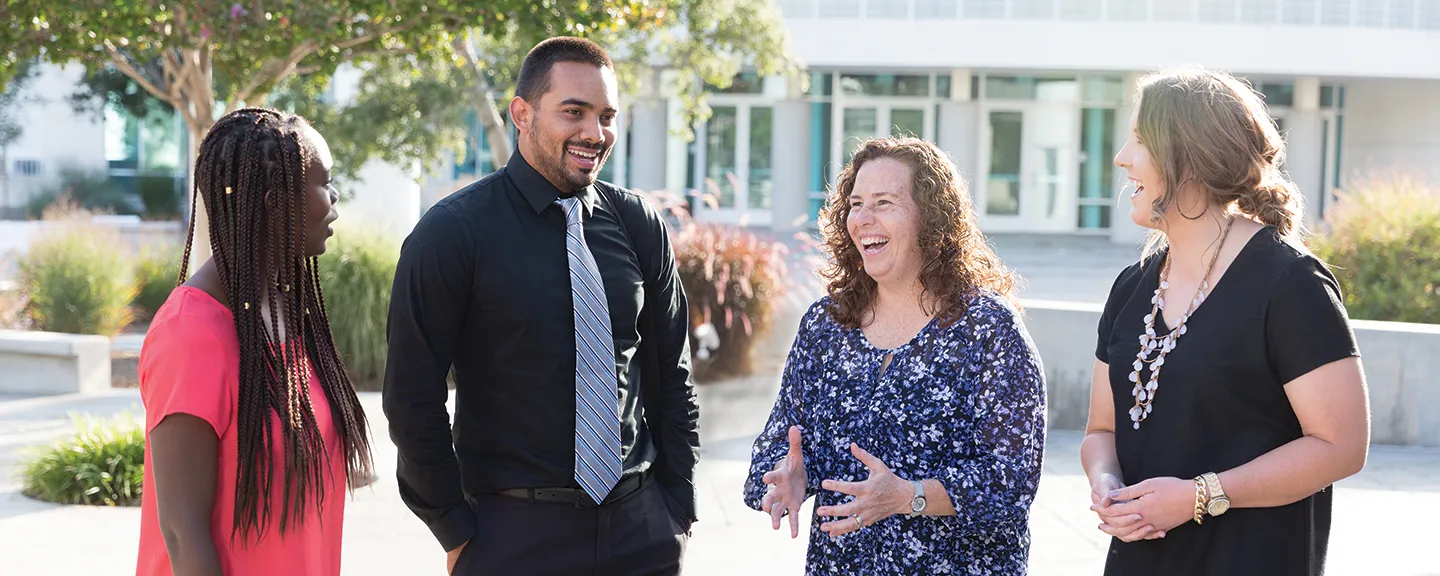- Home
- >
- APU Articles
- >
- News Article
Building a Transformational and Collaborative University
February 25, 2021 | Written By Rukshan Fernando, PhD, and Paola Martinez

To help shape this evolution, the university included in its Strategic Plan the Grand Initiative 3, titled A Transformational and Collaborative Organization, which calls for structural change to meet the needs of today’s students and employees. In the face of a changing higher education landscape and a society challenged by national discord and a global pandemic, a transformed and collaborative learning organization is not optional, it is imperative for the success and impact of each member of the APU Community.
Over the past 20 years, APU experienced tremendous growth in academic and co-curricular programming, faculty research, and community life. APU is fortunate to have a wide-ranging academic portfolio of programs–baccalaureate to doctoral degrees–offered across eight locations and through a number of learning methods. Yet, some of our current strategies and practices must be re-envisioned to meet society’s current and future needs. In becoming a Transformational and Collaborative Organization, we must invest in our community’s growth as an integral part of the university’s bright future. With intention, we seek to create a culture that is attractive to our students and employees, promotes engagement, inspires them about the possibilities ahead, and develops them as individuals with unique God-given gifts.
The behaviors of the individuals in an organization and how they interact together to get work done–the APU culture to which we aspire–begins with leadership. This is no small feat. APU’s leaders must gain and sustain commitment to the shared vision. They must inspire, motivate, collaborate, challenge assumptions, take risks, and encourage innovation. Equally vital to the future of APU, our leadership must promote equity and diversity in the administration of organizational policies and practices. When diversity, inclusion, and equity go together, the APU community is empowered to bring its best to our work and mission.
Today, a culture transformation is under way at APU. President Ferguson began to lay this foundation when he arrived at APU in 2019. He poured into this foundation a spirit of unity, collaboration, and an expectation that the individual divisions would work together through a common set of Christ-centered values. Together, the university community will seek to embody these values, aligning them with the strategic plan and creating opportunities that shape a new set of behaviors and attitudes to build upon and execute for the long-term vision for our community and culture.
To transform our organization, we need to elevate the most important asset we have, our people. Taking time to develop our employees is a valuable investment in our future. This means focusing on strengthening our leadership bench, building critical skills, and enhancing our overall employee experience. We know that by strategically investing in our people, we will emerge as a stronger, more agile and innovative organization. For faculty, we will cultivate interdisciplinary teaching, research, and service. Departments working together will create and adapt programs that seek to answer the fundamental challenges of our times. For staff, it means welcoming them as an important voice at the table, thereby creating meaningful pathways for sincere engagement in the life of the institution. As APU focuses on equity, professional development, and support for all employees, Grand Initiative 3 will incubate a movement which builds on our current strengths and grows our national reputation.
A complex and far-reaching university, Azusa Pacific is making a significant impact now, to be amplified moving forward. With equitable structures and renewed culture, we become a 21st century Christian higher education institution committed to rich learning, spiritual formation, and academic research. Knowing this will take time, APU must evolve akin to the beautiful waterways and landscapes of the Angeles National Forest. Part of that maturation will unfold in important dialogue, which will foster the strength and health of this great institution. Although challenging, we are resolved to rise to this task. The call for a transformed and collaborative organization not only propels us internally, but it also facilitates a credible Christian witness in the midst of a pluralizing and polarizing society and advances God’s work in this world.